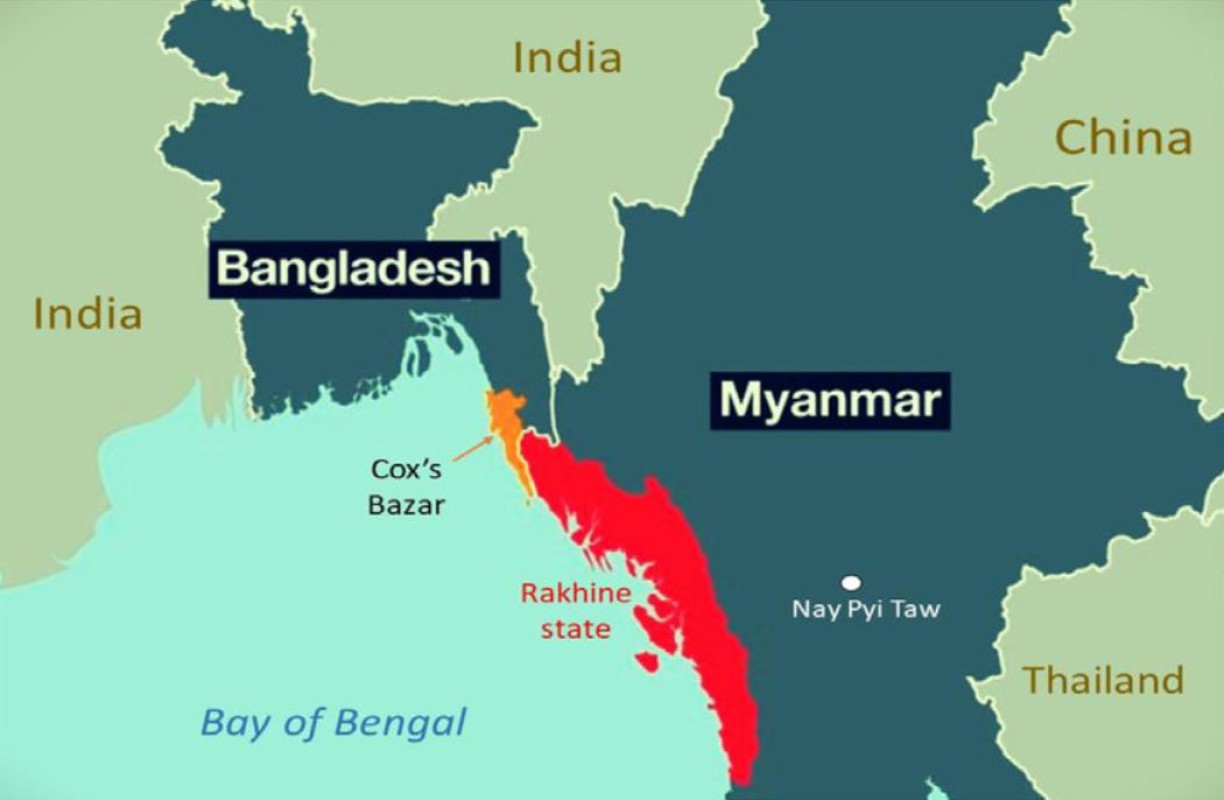Rakhine State under Arakan Army bumps up to life-or-death forecasts

883

Tun Mon Thet (NP News) - Oct 1
Under the illicit seizures of towns and cities in Rakhine State by the terrorist Arakan Army (AA) in the previous months, people in the area are now encountering misfortunes in their daily living: from food, accommodation, and schooling to the recent flood.
Because the Arakan Army contains the Rakhine State by itself, trade channels between the state and the mainland of the country have been blocked. Except for dried fish, the Rakhine State does not have reasonable productivity even in normal circumstances, and therefore the territory mainly relies on the mainland of Myanmar in order to transport commodities, foods, medicines, electronic devices, and other goods to be consumed by its population.
News recently came out that the AA terrorist group imposes prohibition of transporting alcoholic beverages from the mainland, claiming in the pro-AA media that it is boycotting the products from the mainland in aspect of political views. However, the AA lobbies to consume WY tablets and stimulant tablets (an addictive drug with a combination of methamphetamine and caffeine) to the Rakhine population.
Reports state that the Arakan Army is now encouraging the public to consume drugs and stimulant tablets instead of drinking alcohol. They legalize transporting and delivering the opium drugs within their control territories. The Arakan Army issues a kind of certification letter to the people who have paid excise tax for transporting and delivering WY and stimulant tablets so as to be secure passing the AA checkpoints without being inspected.
A reliable source of Rakhine ethnic who remains not to be named said, “They advocate not drinking alcohol imported from the Burmese region. Instead, they urge people to use WY tablets. Everyone can carry the WY tablets as much as they wish after they paid the demanded amount of taxes for those drugs to the AA. What is more, the AA provides certificates for collecting the excise tax. People who can show that certificate at the AA checkpoints can easily be passed without any inspection.”
Concerning the matter, Executive Director of Thayninga Institute for Strategic Studies U Thein Tun Oo remarks: “Rakhine State survived with supplies and foods delivered by the mainland of Myanmar before this time. Therefore, it is becoming a major challenge for them how to live without goods from the mainland in this situation. Hence, prolonging the civil war will be their option in order to exploit advantages to extend their existence. Then, opium becomes their choice to muffle the public and to generate money.”
As per information, Kyauktaw is a transit from which drugs are distributed to further destinations.
Drug smuggling in Rakhine State and Rakhine borderline conducted by the Arakan Army, and its related cross-border organized crimes are in the making of non-traditional security threats for the region territorially connected with neighbouring countries. From Bangladesh, according to some reports, the opium trade route extends even to East Asia and Europe.
With regard to the issue, the Chairman of the Arakan Front Party Dr. Aye Maung remarks, “Despite anti-narcotic operations engaged by the Bangladeshi government, the refugee camps located on Myanmar-Bangladesh borderline are the break journeys of the opioid trade paths. It is true that the increasing expansion of illegal armed equipping, cross-border organized crimes, and drug smugglings in the refugee camps as the spillover effect of Myanmar’s internal conflict are becoming the challenges for Bangladesh and east and north of India.”
Another turmoil happening in the Rakhine State is reported that the underprivileged AA personnel who lost their limbs in the wars are now looked after and cared for by the villages. The AA orders and forcibly urges the villages to take responsibility for those disabled, as reported by the Rakhine ethnic source. According to the source, each village has to take care of at least eight war-torn disabled. There are at least 2,000 villages in the AA-controlled territories in Rakhine State.
What is more, many thousands of Rakhine people have already sacrificed their lives in the battles which decreased the Rakhine population in the region. It is very clear that Bengali aliens will undoubtedly substitute in those vacancies since such stateless have always been crouching to occupy in the region; and will definitely be the malignant cancer cells for Myanmar in the next chapters.
The Arakan Army – without conviction to a strong political ideology, like many other ethnocentric armed forces in Myanmar – formerly claimed fighting for federal rights; has now changed its tone. Twan Mrat Naing, chief of the terrorist Arakan Army, disclosed his demand to develop the Rakhine as a unitary state in his interview with The Diplomat. No matter what they claim for federal rights or confederation or whatsoever, the ethnocentric armed forces’ ultimate intention is obvious to disintegrate from the country, which Tatmadaw and the Burmese population will never allow.
Last but not least, the vicious Arakan Army slaughtered at least 900 individuals of retreated Tatmadaw families, civilians, children, wounded Tatmadaw personnel, and medical staff in the Kaladan River in Kyauktaw on 8 February 2024.